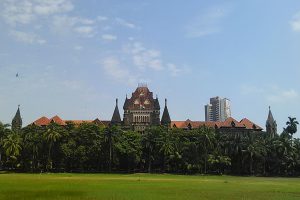Bombay High Court: A Division Bench of S.S. Shinde and V.G. Bisht, JJ. refused to quash the FIR and criminal proceedings against the petitioner, a rape accused, despite settlement between the petitioner and the victim.
The matter related to alleged sexual assault and exploitation of the victim by the petitioner. The victim was a TV actress working in Delhi who was lured by the petitioner, a restaurant owner from Mumbai. It was alleged that the petitioner made promises of marriage to the victim and called her from Delhi to Mumbai. He also said he will get work for her. The petitioner arranged for the victim’s accommodation in Mumbai and it is alleged that on the pretext of marriage, the petitioner made physical relation with the victim against her will. It was also alleged that the victim got pregnant but had to undergo abortion despite resistance as the petitioner allegedly put a gun to her head and forced her to abort the pregnancy. Subsequently, the victim came to know that the petitioner is already married. After this, she filed an FIR against the petitioner and a criminal case was registered.
The petitioner also filed a cross complaint against the victim addressed to the Police Commissioner, Mumbai, in which the victim filed an affidavit in reply that as per advice of their elders, the petitioner and the victim have decided to amicably settle the dispute between them and move on in their careers.
Vishal Kanade and Satyaprakash Sharma instructed by Shakuntala Sharma counsel for the petitioner, and Abhinav Chandrachud instructed by Prem Kumar R. Pandey, counsel for the victim jointly submitted that the FIR as also the chargesheet against the petitioner may be quashed. Per contra, S.D. Shinde, the Additional Public Prosecutor vehemently opposed the quashing of FIR on the ground that the alleged offences are serious and heinous offences.
Relying on the Supreme Court decision in Gian Singh v. State of Punjab, (2012) 10 SCC 303 and State of M.P. v. Laxmi Narayan, (2019) 5 SCC 688, the High Court was of the opinion that the FIR and the chargesheet could not be quashed on the basis of alleged settlement and consent terms arrived at between the parties for the following reasons:
(i) The alleged offences are serious in nature and in particular, offence punishable under Section 376 of the IPC is heinous.
(ii) The petitioner told the victim that he was unmarried and wished to marry the victim, when in fact he was already married.
(iii) The petitioner sexually abused the victim by promising her that he will give her a job in the film industry.
(iv) There is serious allegation that the victim conceived from the petitioner, and he compelled the victim for abortion at the gunpoint.
The petitioner than advanced arguments on merits. He submitted that there was inordinate delay in lodging the FIR. Further, the victim was a consenting party and therefore the ingredients of Section 375 IPC were not attracted. On this point also, the Court declined to quash the FIR against the petitioner as it thought fit that the merits could not be dealt with in a summary manner and need to go to trial.
The Court observed that: “It prima facie appears that the consent given by the 2nd respondent [victim] for quashing the FIR and charge-sheet is not free from coercion, inasmuch as, it is stated in the said affidavit filed by the 2nd respondent that the petitioner’s wife also filed complaint against the 2nd respondent for the offence punishable under Section 452 IPC.”
It was further observed: “The alleged offences are not individual in nature and quashing of the impugned FIR, chargesheet and pending proceedings on the basis of alleged settlement or on merits is not possible since the alleged offences are not individual in nature and outcome of present proceedings will have impact on Society.”
As far as the issue of inordinate delay in lodging the FIR was concerned, the Court said that adjudication of issue of delay is a mixed question of fact and law and therefore that will have to be considered at the trial.
The petition to quash the FIR and the chargesheet was accordingly dismissed. [Chirag Sundarlal Gupta v. State of Maharashtra, 2020 SCC OnLine Bom 627, decided on 13-3-2020]

